Three radio jockeys in Kashmir represent aspects of life in the Valley not often given much play in the mainstream media.
Three radio jockeys in Kashmir represent aspects of life in the Valley not often given much play in the mainstream media.
‘I will not shut up’
On the other end of the telephone, a child-like female voice mumbles in the affirmative when asked if she’s Shayista Farooqi, the Kashmiri RJ. She sounds far removed from the chatty RJs elsewhere.
This impression is soon dispelled, however, as it quickly becomes apparent that the 23-year-old can speak for minutes without pausing for breath. What is refreshing about Shayista, though, is that she is oblivious to the political correctness Kashmir expects in its mediapersons.
“I love being a journalist, but I am only half that. For a Kashmiri, that is like being a shadow of the person you are,” she says. “I get a chance to speak of pressing civic issues of Pulwama city on Awantipora’s community radio show, Pesh Kadam (A step ahead), which is great. But militancy, fear and human rights violations? I have to pretend like they don’t exist here,” she says.
Shayista hosts the weekly 30-minute show which has four slots — the Cover Story (highlighting a civic or social issue in detail), Myon Aound Pouk (‘My Surroundings’, which speaks of a historical or cultural hub of Kashmir), a section that discusses innovations in rural India and another one on gadgets and technology.
Shayista says that even as a child she would jump out of bed in the morning and run out to buy three newspapers because her family subscribed only to one. At the age of 14, she found a mentor in her well-read physics tuition teacher, who spoke to her of politics and current affairs and encouraged her to form her own opinions rather than go by those of others.
“It was the first time I had met someone who didn’t rattle off safe and hollow opinions. He told me he was also a freelance journalist. My 14-year-old mind made a seemingly clear connection that being a journalist meant you could have a voice in Kashmir.”
Shayista graduated in Science because Kashmir didn’t have an under-graduate journalism course. But she is now a Masters student in Journalism at the Islamic University of Science and Technology. “It is so easy to throw your hands up and say, ‘Nothing’s going to change, let’s just do nothing’.
But I won’t do that. If I can’t express myself in one medium, I’ll throw open another. Blogs and social networks already air much of what the real Kashmir goes through.”
Shayista says she made this decision the night CRPF jawans entered her home claiming it was a militant hideout. Her uncle kept mum because he feared for the girls’ safety, but Shayista spoke up. Two of her uncles, and a cousin, have lost their lives amidst the strife.
“They think we can be harassed because we don’t have channels to express our reality. People have found ways, and so will I. I will not shut up.”
‘Time to change our nightlife’
“I remember growing up with this instinctive feeling that you couldn’t question anything. We had no one we could go to and demand, ‘Where is our water, why are there no roads to walk on?’
But living with militancy doesn’t mean these everyday issues disappear,” says Tawqeer Hussain, 26, who hails from a nondescript village in Anantnag district, where three teenagers were shot dead by CRPF jawans during last year’s unrest.
It was this need to “have the right to question” that made Hussain decide to become a radio jockey at Awantipora’s community radio, ‘Pesh Kadam’. For instance, Awantipora faces an acute water scarcity. Last year, through his show, Hussain approached the civic authorities in Kashmir and pointed out the schemes that needed to be in place and the number of filtration plants the area needed. Within the next four months, Awantipora’s residents saw the schemes being passed and construction of plants began soon after. A lady entrepreneur was trying to revive the region’s arts and handicrafts since 2007, but no one had heard about her work.
Days after Hussain’s report was aired on radio, people approached her to help the cause. It wasn’t just about reviving Kashmiri arts, Hussain points out. Kashmir is still getting used to the idea of working women and a dynamic woman was a role model for young girls.
Hussain now specialises in television journalism at the Islamic University of Science and Technology, but his dream was to study at the Aligarh University. He was also accepted by a journalism college at Delhi, but his parents stopped him “because a Kashmiri is always seen as a militant in the outside world”.
“My parents are illiterate and I don’t blame them for their insecurities,” says Hussain, but he also knows where they stem from. Last year, during an internship at a Delhi TV channel, Hussain was repeatedly questioned about the region’s militancy.
“No one asked me how the government’s developmental efforts were going or when will private firms enter Kashmir. We have so many students passing out every year, newer courses — on journalism and films — are being introduced. But obviously, no one around the country is thinking about any of that.”
Currently, Hussain is thinking of an effective way to reach out to Kashmiris and help them see that they need a nightlife. Recently, at the Night Bazaar at Dal Lake, for the first time, the area stayed open till 1am instead of shutting shop at 10pm. “For many, it is unthinkable to think of cultural celebrations — conflict has become the Kashmiri culture. We will change that.”
‘People don’t want to die of boredom’
Twenty-six-year-old Wafa Vakil takes her job as an RJ at Big FM very seriously — including its policy on not speaking about the region’s political situation or conflicts. “I will not comment on either,” she clarifies before the telephonic interview.
“I cannot bore my listeners on my morning show Big Noon Chai (the name refers to Kashmir’s traditional salty tea, and also the time of day when it’s aired). Kashmir has seen enough strife, it is time people can sit back and be entertained.” Wafa is known as Haya to her listeners.
Five years ago, Wafa heard that Big FM was holding auditions in “this part of the world” (a term she often uses throughout the conversation). “I knew I had to be a part of it, and not just as a listener.”
Wafa admits she did wonder whether people would accept a woman RJ in Kashmir. “Thankfully my job proved me wrong — it’s not about being a man or a woman. Spontaneity isn’t gender-specific, is it?” On Big Noon Chai, Wafa plays Bolywood music, discusses horoscopes and fitness, as well as civic issues. There’s no place for the ‘serious’ stuff. “Well, we don’t take up issues that don’t have solutions.”
Last summer, when Kashmir had a flareup of unrest which claimed a number of lives, Wafa remembers how listeners, cooped up at home, would call her and request their favourite music.
![submenu-img]() Big update on Pakistan's first-ever Moon mission and it has this China connection...
Big update on Pakistan's first-ever Moon mission and it has this China connection...![submenu-img]() 2024 Maruti Suzuki Swift officially teased ahead of launch, bookings open at price of Rs…
2024 Maruti Suzuki Swift officially teased ahead of launch, bookings open at price of Rs…![submenu-img]() 'Kyun bhai kyun?': Sheezan Khan slams actors in Sanjay Leela Bhansali's Heeramandi, says 'nobody could...'
'Kyun bhai kyun?': Sheezan Khan slams actors in Sanjay Leela Bhansali's Heeramandi, says 'nobody could...'![submenu-img]() Meet Jai Anmol, his father had net worth of over Rs 183000 crore, he is Mukesh Ambani’s…
Meet Jai Anmol, his father had net worth of over Rs 183000 crore, he is Mukesh Ambani’s…![submenu-img]() Shooting victim in California not gangster Goldy Brar, accused of Sidhu Moosewala’s murder, confirm US police
Shooting victim in California not gangster Goldy Brar, accused of Sidhu Moosewala’s murder, confirm US police![submenu-img]() DNA Verified: Is CAA an anti-Muslim law? Centre terms news report as 'misleading'
DNA Verified: Is CAA an anti-Muslim law? Centre terms news report as 'misleading'![submenu-img]() DNA Verified: Lok Sabha Elections 2024 to be held on April 19? Know truth behind viral message
DNA Verified: Lok Sabha Elections 2024 to be held on April 19? Know truth behind viral message![submenu-img]() DNA Verified: Modi govt giving students free laptops under 'One Student One Laptop' scheme? Know truth here
DNA Verified: Modi govt giving students free laptops under 'One Student One Laptop' scheme? Know truth here![submenu-img]() DNA Verified: Shah Rukh Khan denies reports of his role in release of India's naval officers from Qatar
DNA Verified: Shah Rukh Khan denies reports of his role in release of India's naval officers from Qatar![submenu-img]() DNA Verified: Is govt providing Rs 1.6 lakh benefit to girls under PM Ladli Laxmi Yojana? Know truth
DNA Verified: Is govt providing Rs 1.6 lakh benefit to girls under PM Ladli Laxmi Yojana? Know truth![submenu-img]() Remember Heyy Babyy's cute 'Angel' Juanna Sanghvi? 20 year-old looks unrecognisable now, fans say 'her comeback will...'
Remember Heyy Babyy's cute 'Angel' Juanna Sanghvi? 20 year-old looks unrecognisable now, fans say 'her comeback will...'![submenu-img]() In pics: Arti Singh stuns in red lehenga as she ties the knot with beau Dipak Chauhan in dreamy wedding
In pics: Arti Singh stuns in red lehenga as she ties the knot with beau Dipak Chauhan in dreamy wedding![submenu-img]() Actors who died due to cosmetic surgeries
Actors who died due to cosmetic surgeries![submenu-img]() See inside pics: Malayalam star Aparna Das' dreamy wedding with Manjummel Boys actor Deepak Parambol
See inside pics: Malayalam star Aparna Das' dreamy wedding with Manjummel Boys actor Deepak Parambol ![submenu-img]() In pics: Salman Khan, Alia Bhatt, Rekha, Neetu Kapoor attend grand premiere of Sanjay Leela Bhansali's Heeramandi
In pics: Salman Khan, Alia Bhatt, Rekha, Neetu Kapoor attend grand premiere of Sanjay Leela Bhansali's Heeramandi![submenu-img]() DNA Explainer: Why Harvey Weinstein's rape conviction was overturned, will beleaguered Hollywood mogul get out of jail?
DNA Explainer: Why Harvey Weinstein's rape conviction was overturned, will beleaguered Hollywood mogul get out of jail?![submenu-img]() What is inheritance tax?
What is inheritance tax?![submenu-img]() DNA Explainer: What is cloud seeding which is blamed for wreaking havoc in Dubai?
DNA Explainer: What is cloud seeding which is blamed for wreaking havoc in Dubai?![submenu-img]() DNA Explainer: What is Israel's Arrow-3 defence system used to intercept Iran's missile attack?
DNA Explainer: What is Israel's Arrow-3 defence system used to intercept Iran's missile attack?![submenu-img]() DNA Explainer: How Iranian projectiles failed to breach iron-clad Israeli air defence
DNA Explainer: How Iranian projectiles failed to breach iron-clad Israeli air defence![submenu-img]() 'Kyun bhai kyun?': Sheezan Khan slams actors in Sanjay Leela Bhansali's Heeramandi, says 'nobody could...'
'Kyun bhai kyun?': Sheezan Khan slams actors in Sanjay Leela Bhansali's Heeramandi, says 'nobody could...'![submenu-img]() Meet actress who once competed with Aishwarya Rai on her mother's insistence, became single mother at 24, she is now..
Meet actress who once competed with Aishwarya Rai on her mother's insistence, became single mother at 24, she is now..![submenu-img]() Makarand Deshpande says his scenes were cut in SS Rajamouli’s RRR: ‘It became difficult for…’
Makarand Deshpande says his scenes were cut in SS Rajamouli’s RRR: ‘It became difficult for…’![submenu-img]() Meet 70s' most daring actress, who created controversy with nude scenes, was rumoured to be dating Ratan Tata, is now...
Meet 70s' most daring actress, who created controversy with nude scenes, was rumoured to be dating Ratan Tata, is now...![submenu-img]() Meet superstar’s sister, who debuted at 57, worked with SRK, Akshay, Ajay Devgn; her films earned over Rs 1600 crore
Meet superstar’s sister, who debuted at 57, worked with SRK, Akshay, Ajay Devgn; her films earned over Rs 1600 crore![submenu-img]() IPL 2024: Spinners dominate as Punjab Kings beat Chennai Super Kings by 7 wickets
IPL 2024: Spinners dominate as Punjab Kings beat Chennai Super Kings by 7 wickets![submenu-img]() Australia T20 World Cup 2024 squad: Mitchell Marsh named captain, Steve Smith misses out, check full list here
Australia T20 World Cup 2024 squad: Mitchell Marsh named captain, Steve Smith misses out, check full list here![submenu-img]() SRH vs RR, IPL 2024: Predicted playing XI, live streaming details, weather and pitch report
SRH vs RR, IPL 2024: Predicted playing XI, live streaming details, weather and pitch report![submenu-img]() SRH vs RR IPL 2024 Dream11 prediction: Fantasy cricket tips for Sunrisers Hyderabad vs Rajasthan Royals
SRH vs RR IPL 2024 Dream11 prediction: Fantasy cricket tips for Sunrisers Hyderabad vs Rajasthan Royals ![submenu-img]() IPL 2024: Marcus Stoinis, Mohsin Khan power Lucknow Super Giants to 4-wicket win over Mumbai Indians
IPL 2024: Marcus Stoinis, Mohsin Khan power Lucknow Super Giants to 4-wicket win over Mumbai Indians![submenu-img]() Viral video: Man's 'peek-a-boo' moment with tiger sends shockwaves online, watch
Viral video: Man's 'peek-a-boo' moment with tiger sends shockwaves online, watch![submenu-img]() Viral video: Desi woman's sizzling dance to Jacqueline Fernandez’s ‘Yimmy Yimmy’ burns internet, watch
Viral video: Desi woman's sizzling dance to Jacqueline Fernandez’s ‘Yimmy Yimmy’ burns internet, watch![submenu-img]() Viral video: Men turn car into mobile swimming pool, internet reacts
Viral video: Men turn car into mobile swimming pool, internet reacts![submenu-img]() Meet Youtuber Dhruv Rathee's wife Julie, know viral claims about her and how did the two meet
Meet Youtuber Dhruv Rathee's wife Julie, know viral claims about her and how did the two meet![submenu-img]() Viral video of baby gorilla throwing tantrum in front of mother will cure your midweek blues, watch
Viral video of baby gorilla throwing tantrum in front of mother will cure your midweek blues, watch



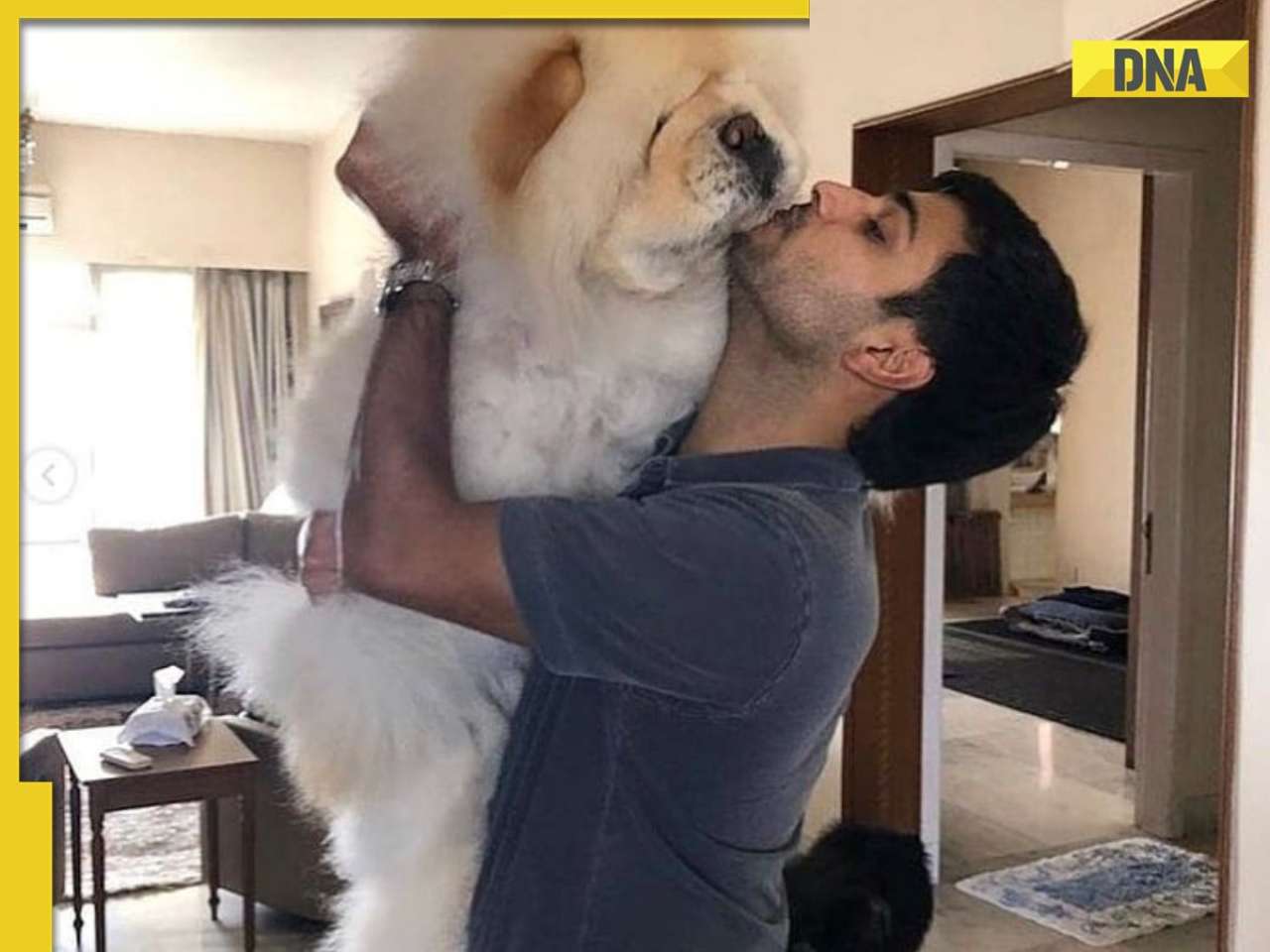
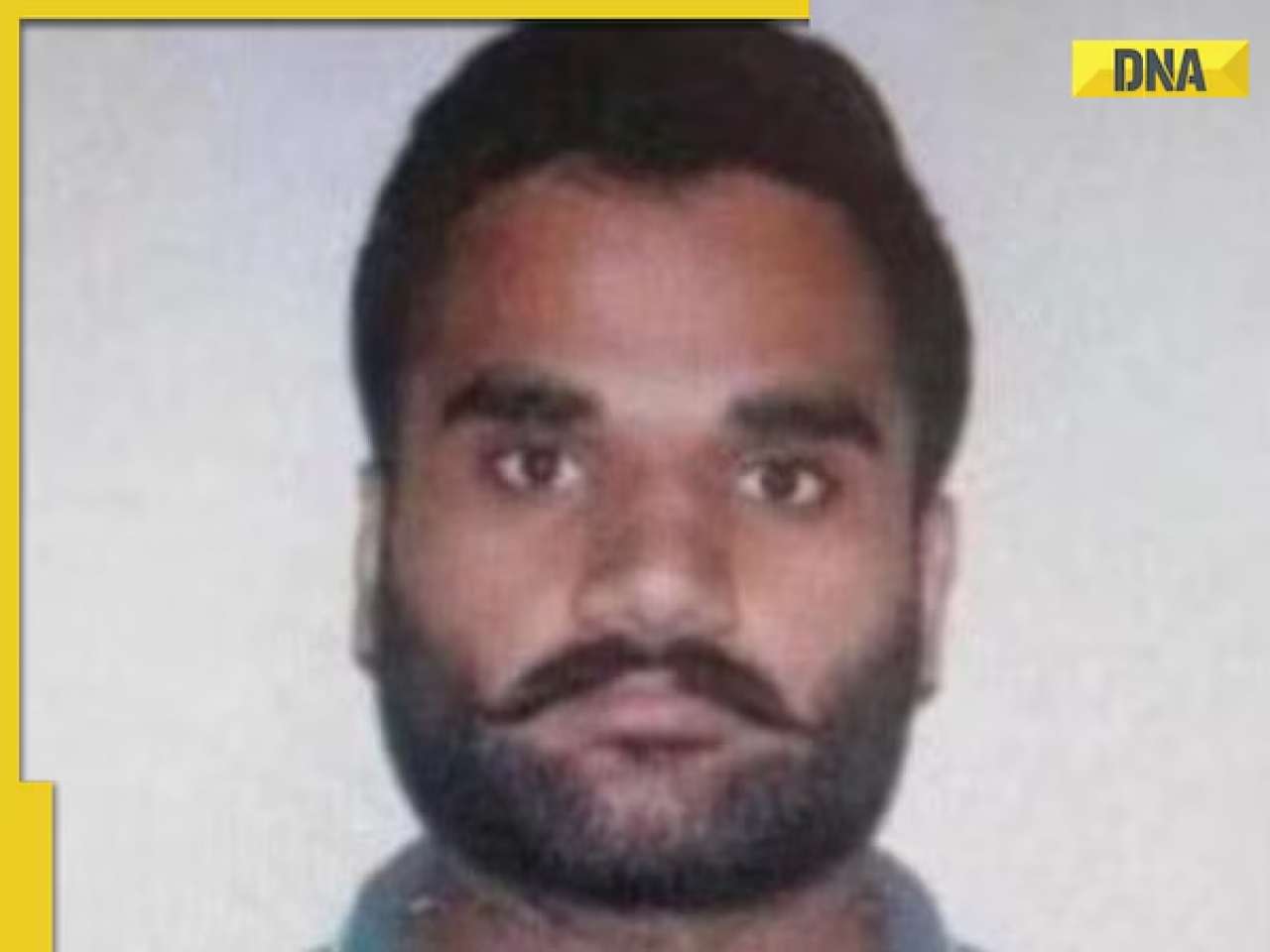




















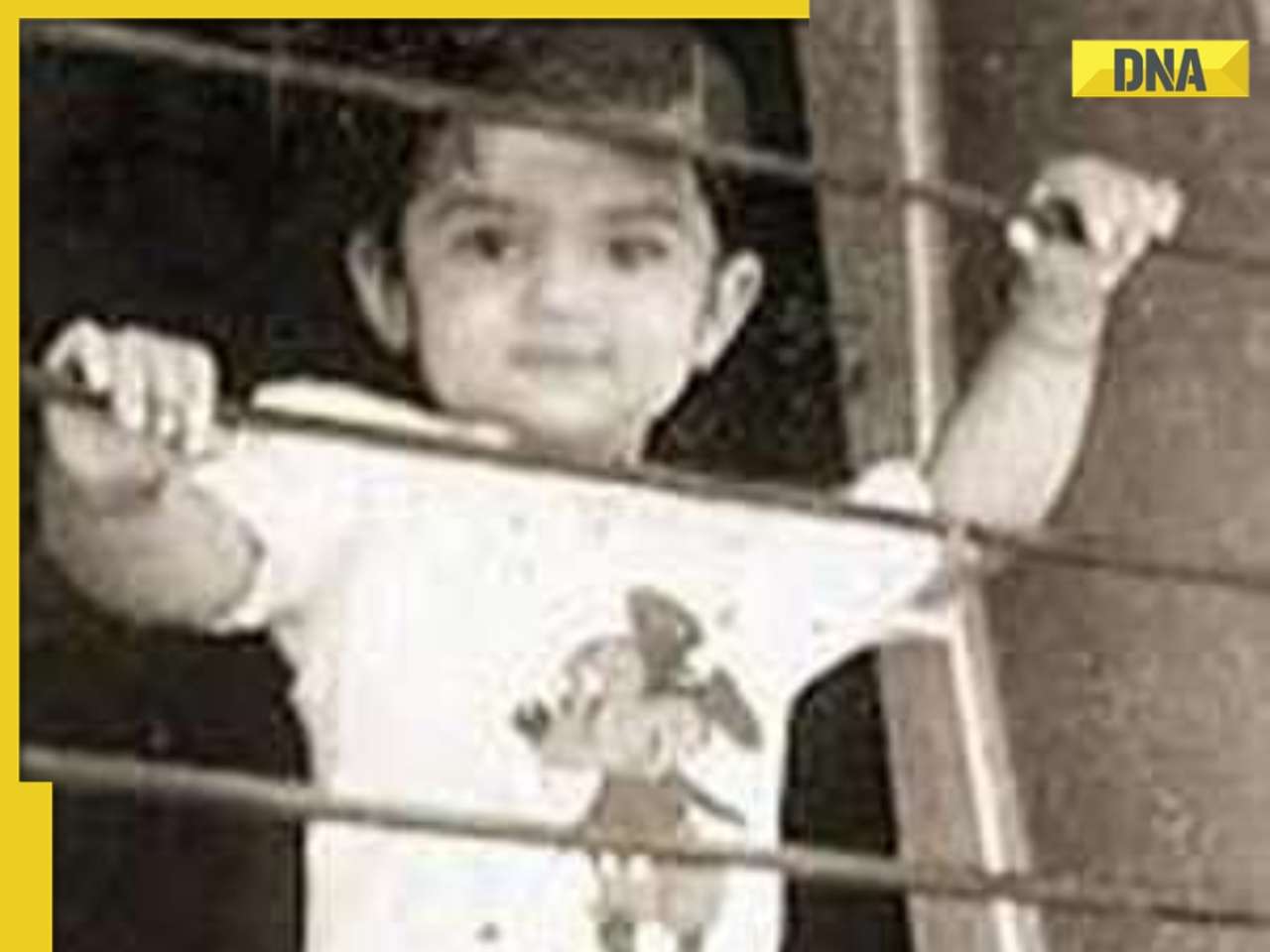
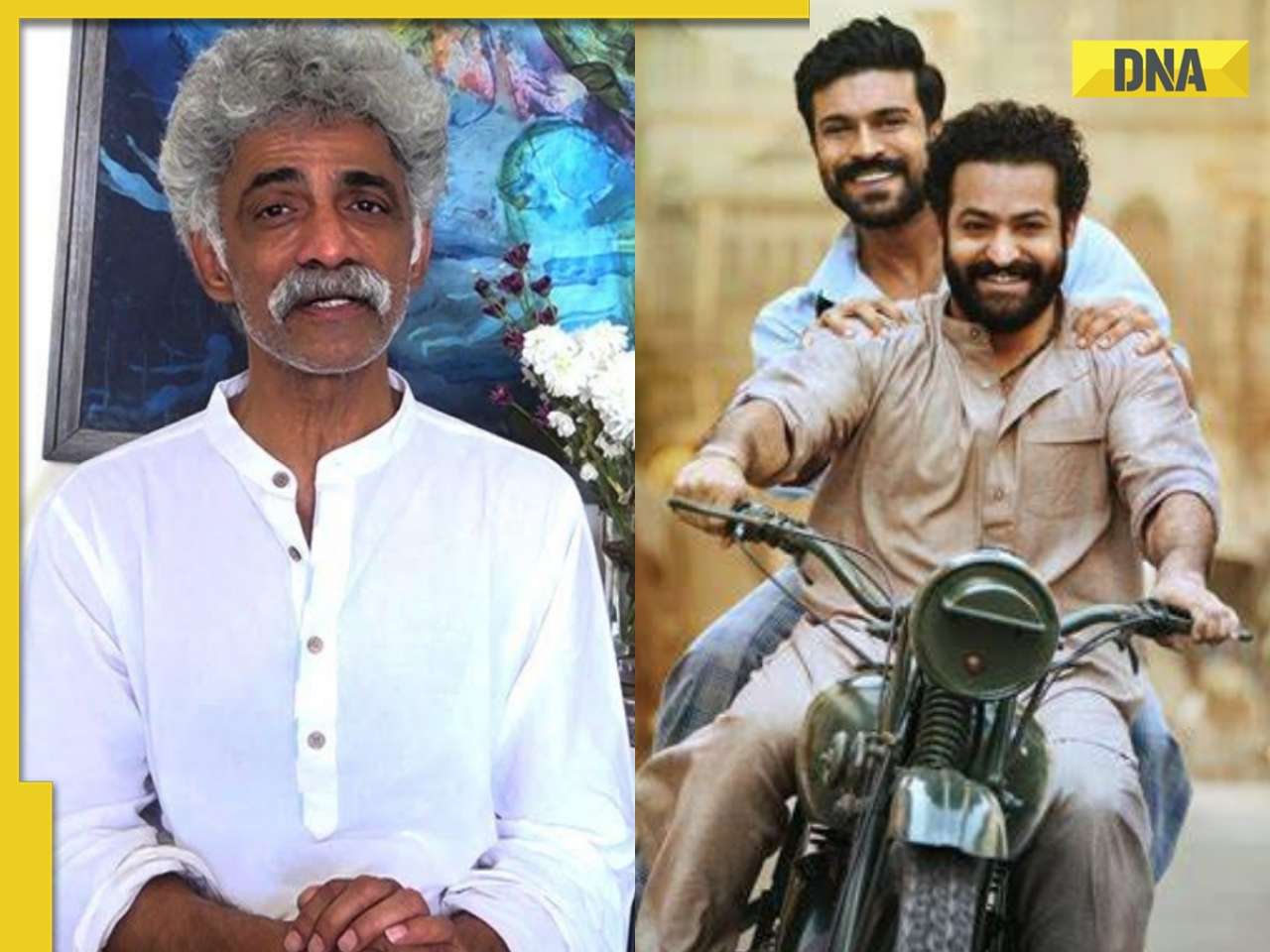
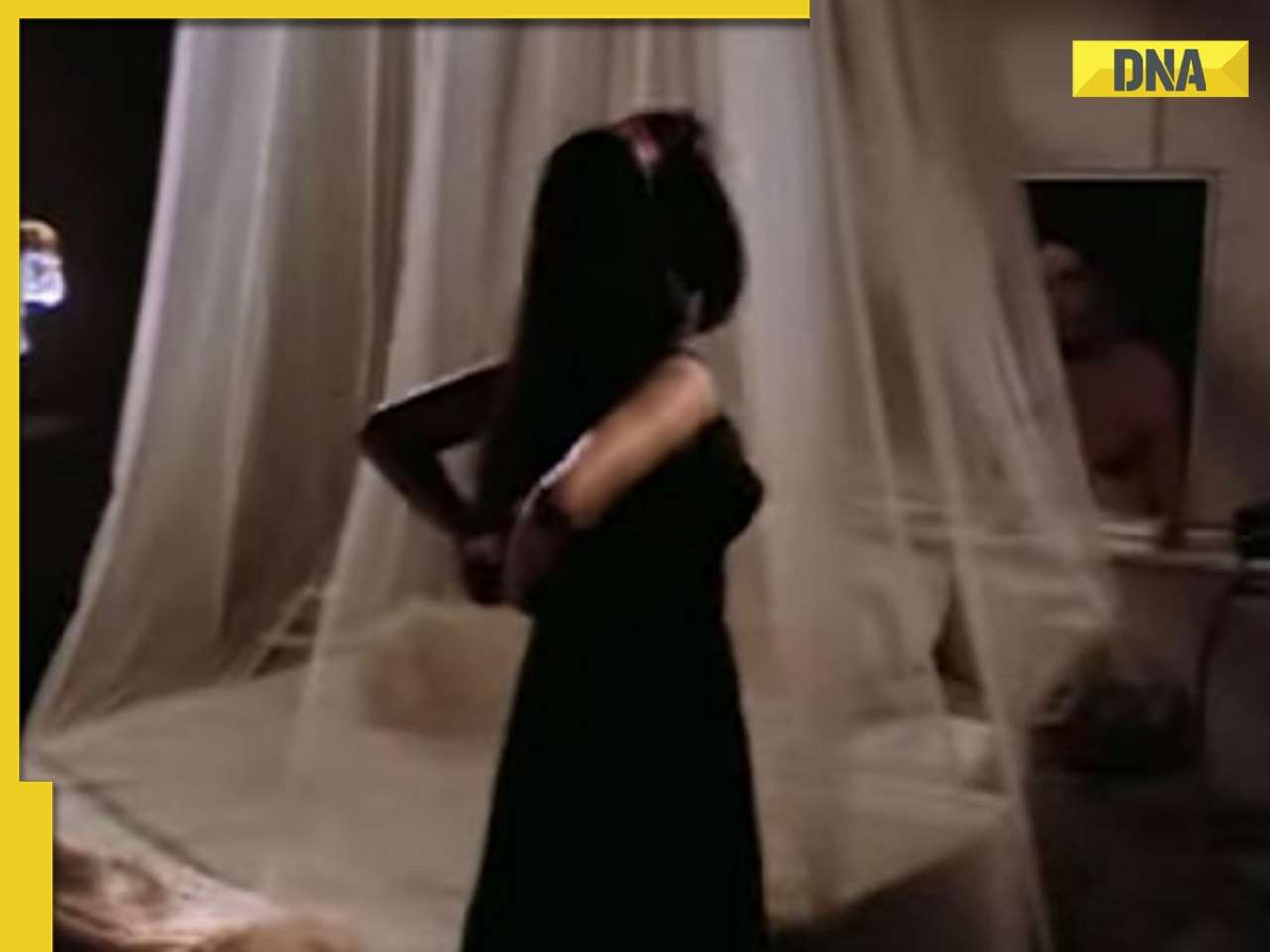
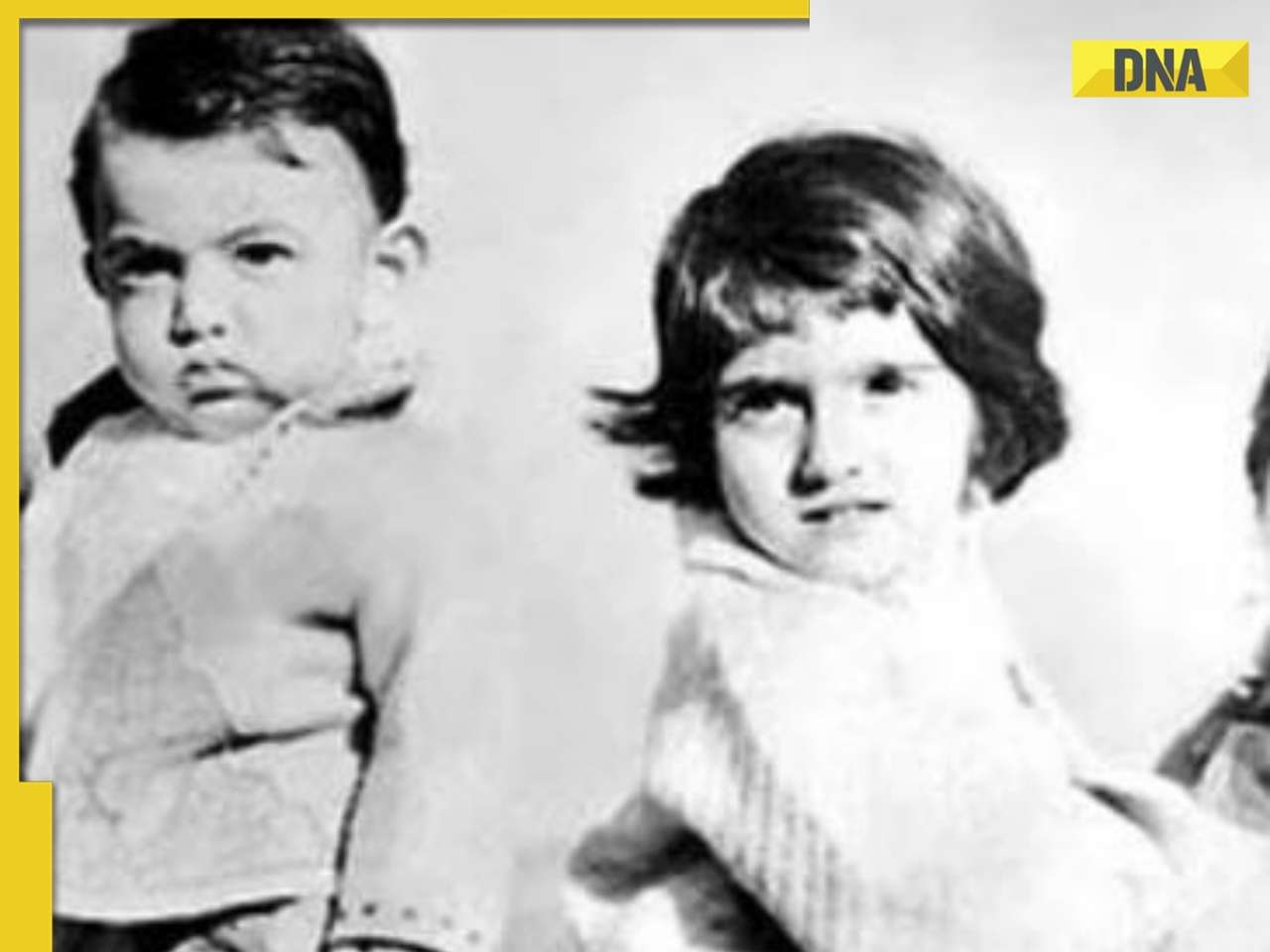
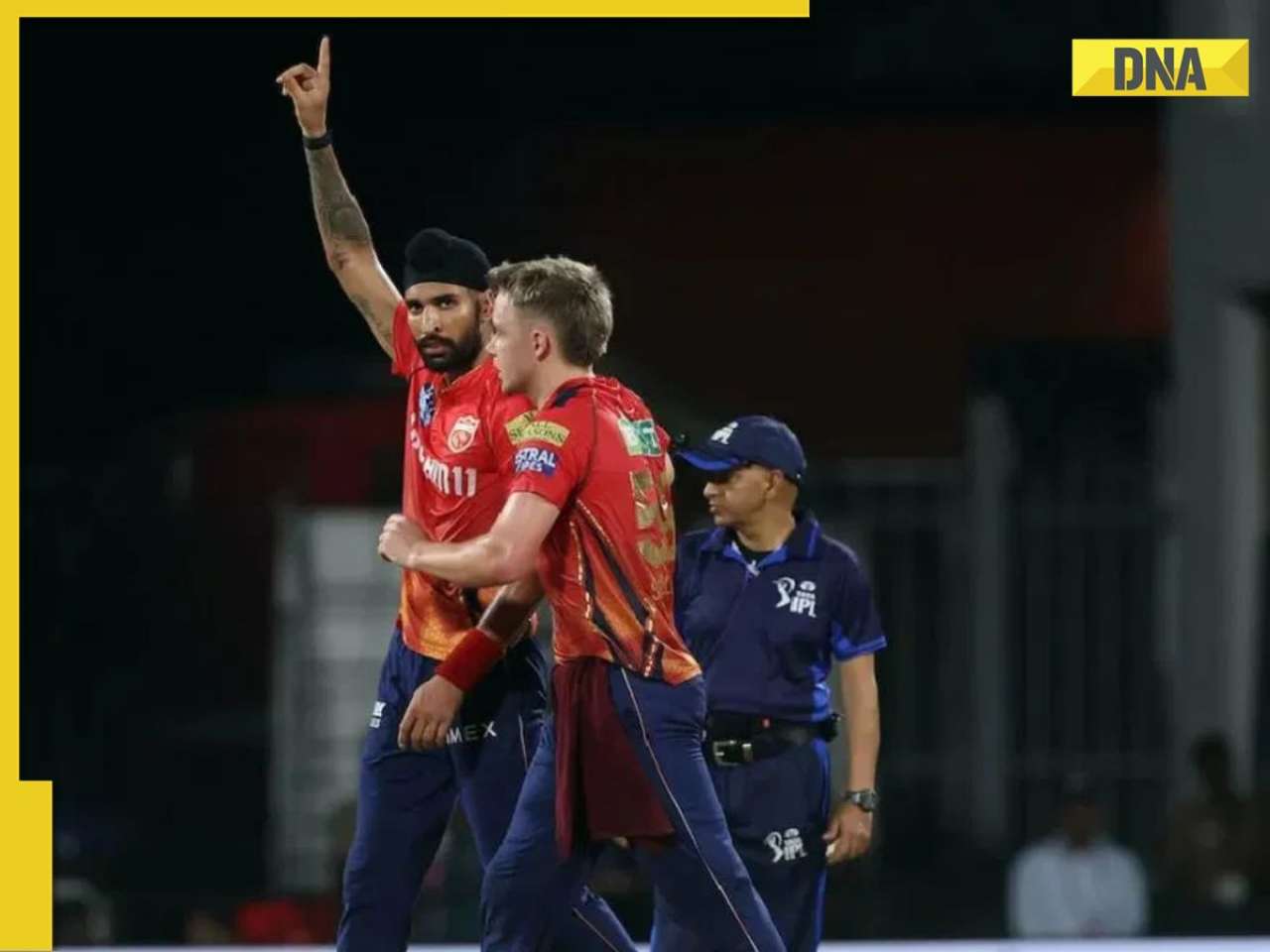
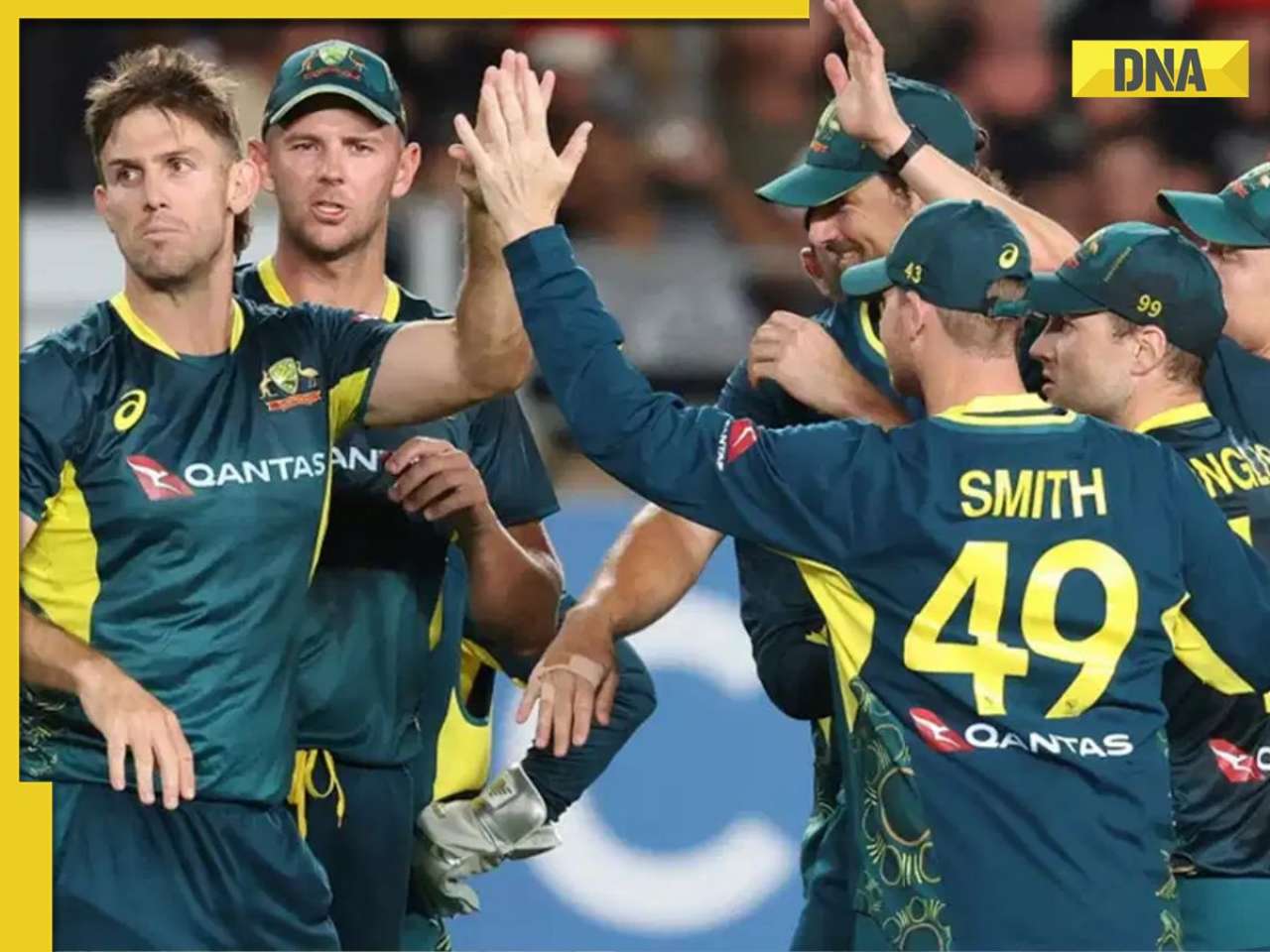
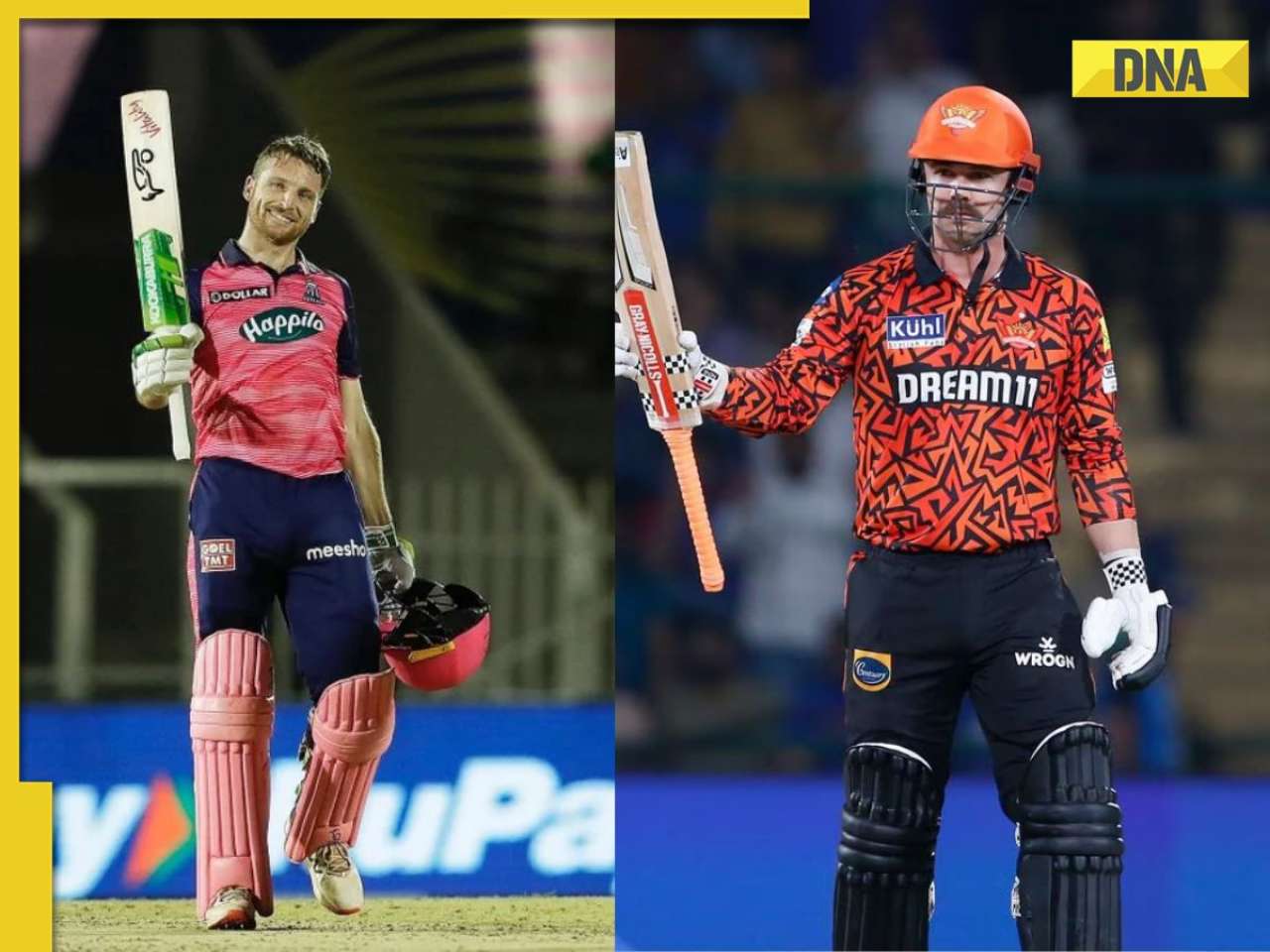
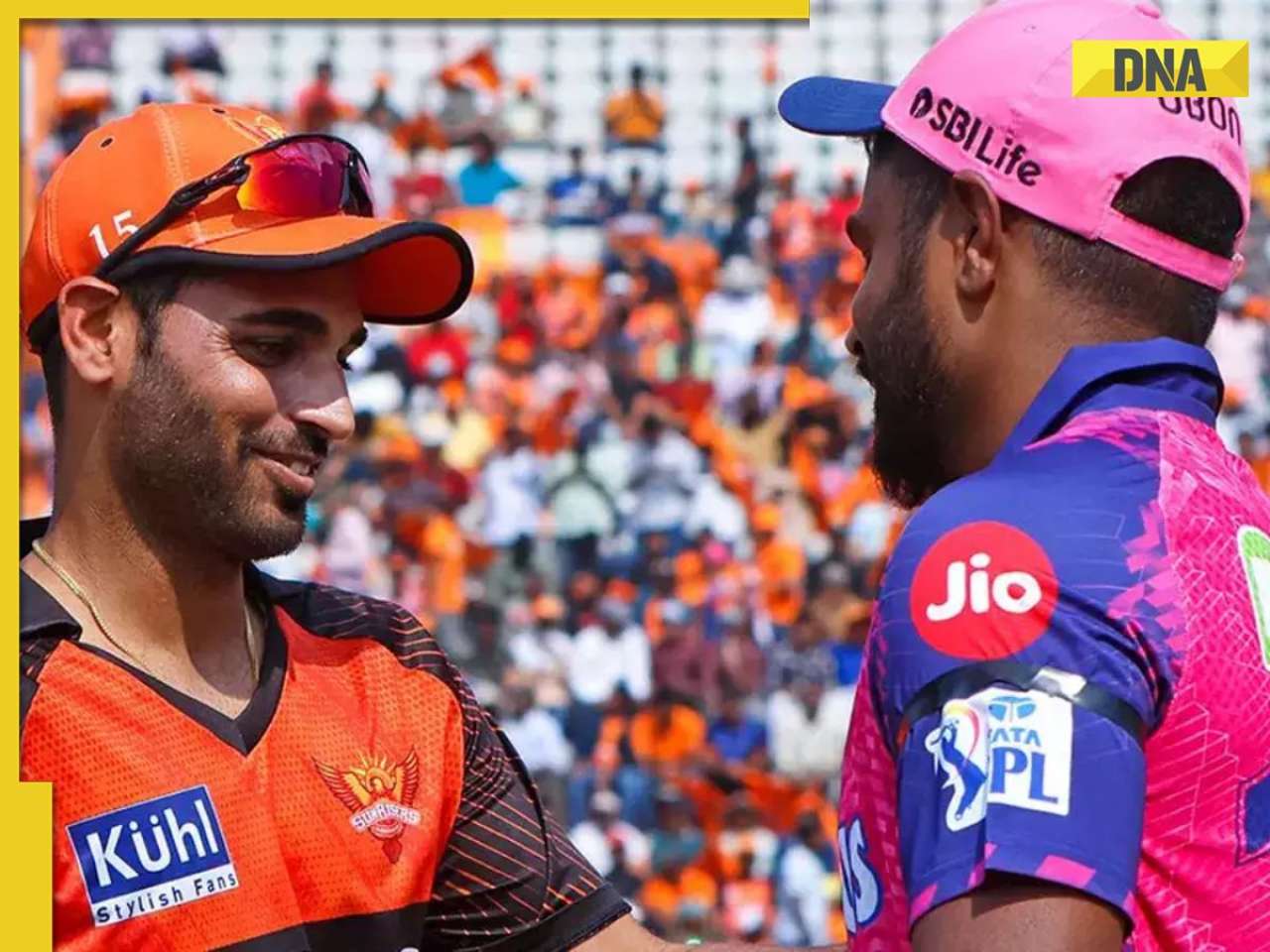



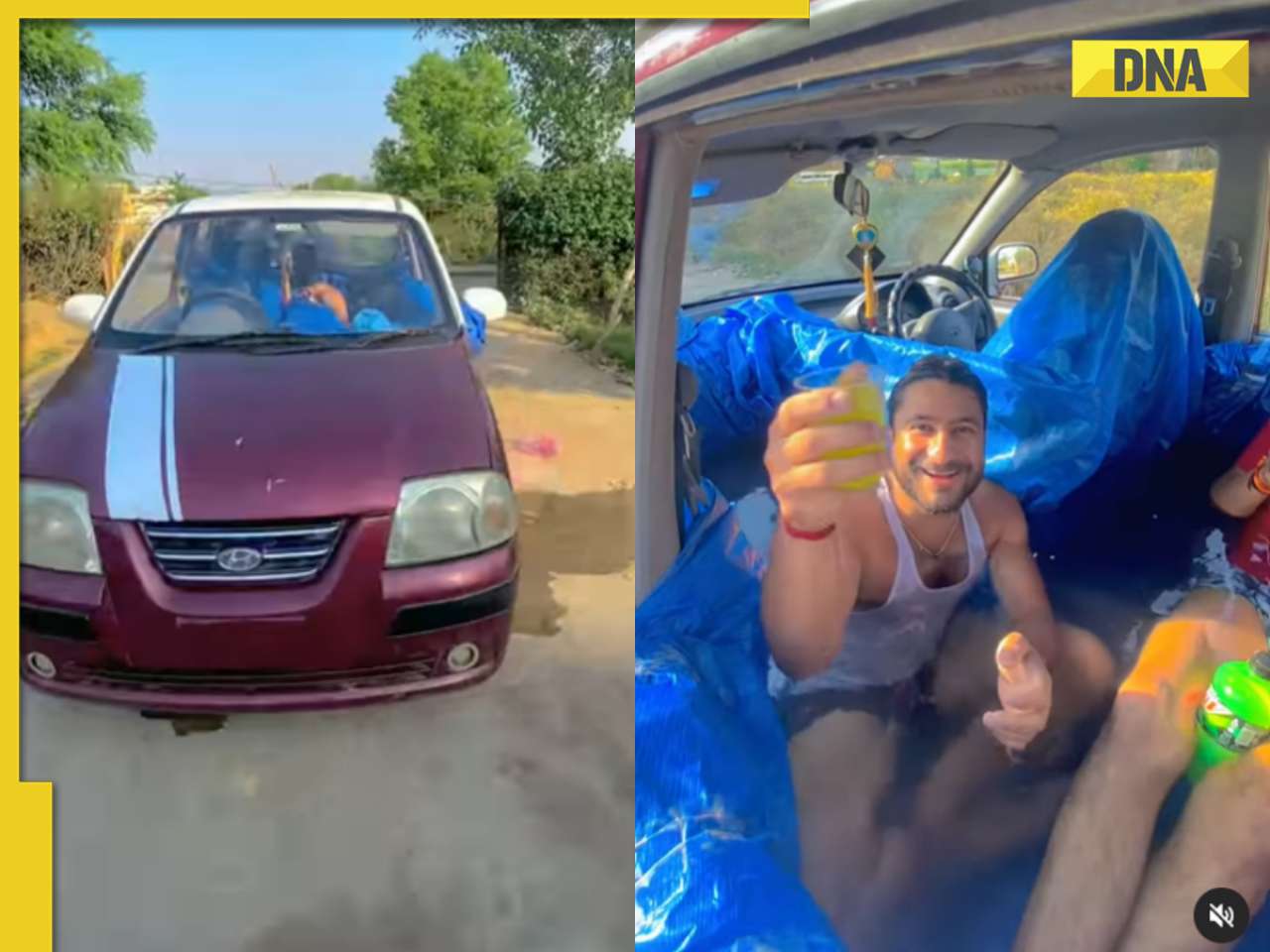

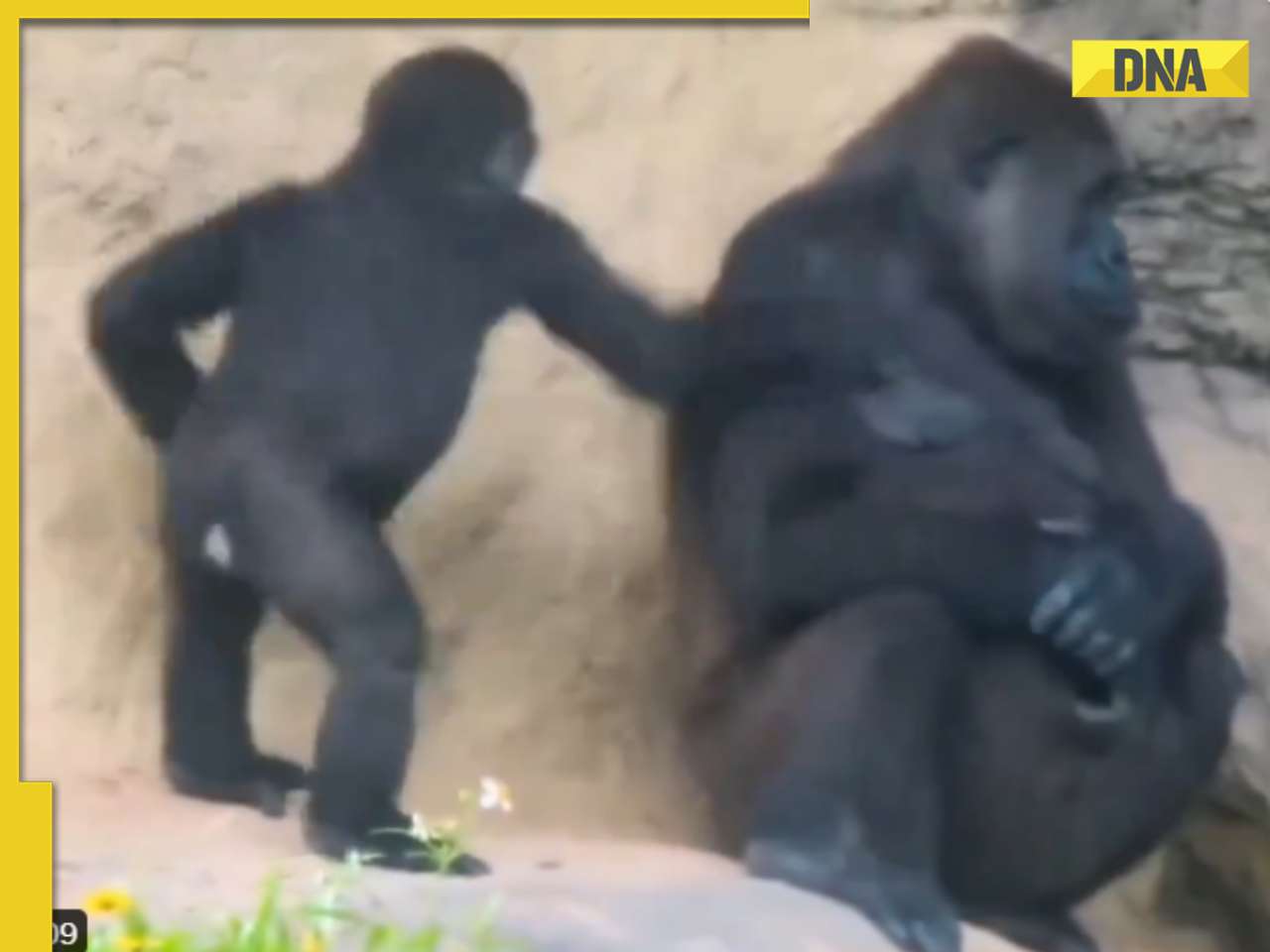











)
)
)
)
)
)